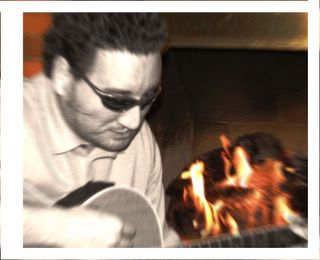Back at my freshman year at Missouri State, I had to read Viktor Frankl's "Man's Search For Meaning" for a religion 101 class. Did I read it? Yes. Do I remember it? Very, very little.
Yet, it's one of those books that ranks up there with, oh, the Bible, and Why Bad Things Happen To Good People, etc. Such valueable information, all presented with such horrid reality from the holocaust that, if nothing else, it leaves the reader knowing how good we have it.
Ya know, though, I don't think that lowest common denominator was Frankl's goal; i.e., that people feel good b/c they're not in a concentration camp. Rather, he's trying to show his philosophy that his reason for survival was partially credited by his desire to see his wife again and have hisschool of thought known by the world.
When Frankl talked about this (BTW, I just read the book again over the last few days), I kinda related to him. When I do speeches or write articles or books or whatever, my goal isn't that the listener/reader walk away going, "Man, with everything Marcus has been through, I've got nothing to complain about!" Rather, I'm hopeful that the elements I put into practice to get through my extreme adversity can be applicable to the life of the reader/listener. Dig?
Because of my desire to be known for my motto and philosophies, I paid particular attention to those of Frankl. Still, how can you read aboput the horrors of Auschweitz and not be grateful to live in 21st century America?
While I often give book reccomendations to my blog readers, this is one of those books of paramount importance. I feel like our world would be better off if everyone at a sixth grade level or above would read, "Man's Search For Meaning." That's a pretty big position...and one I don't take lightly. The info therein is just so, so relevant to the lives of everyone who has ever asked the question, "What's my place in this world?"
Sunday, August 22, 2010
Subscribe to:
Post Comments (Atom)


No comments:
Post a Comment